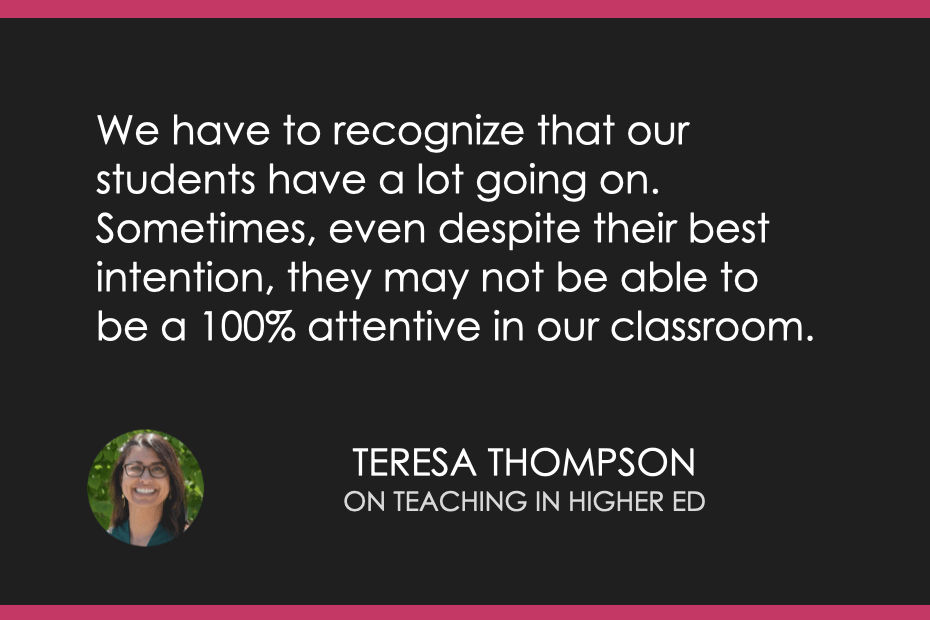
 Teaching in Higher Ed
Teaching in Higher Ed Joyful Connections Through Intentional Teaching Practices
Oct 10, 2024
Teresa Thompson, a tenured accounting professor at West Valley College known for her innovative teaching, shares her unique approach to education. She emphasizes the power of intentional communication, like thoughtful welcome emails, to ease students' anxiety. Teresa creatively incorporates pop culture into her syllabi, with themes like Barbie and Pokémon, making learning relatable and fun. She also highlights the importance of empathy and connection in fostering a supportive classroom environment, ensuring students feel seen and engaged.
Chapters
Transcript
Episode notes
1 2 3 4 5 6
Intro
00:00 • 2min
The Power of Compassionate Interactions in Education
02:29 • 4min
Welcoming Students with Intentional Communication
06:33 • 2min
Engaging Syllabi: Connecting Pop Culture to Learning
08:43 • 6min
Creating Connections in the Classroom
14:49 • 6min
Engaging Students Through Dynamic Teaching Strategies
20:34 • 22min

